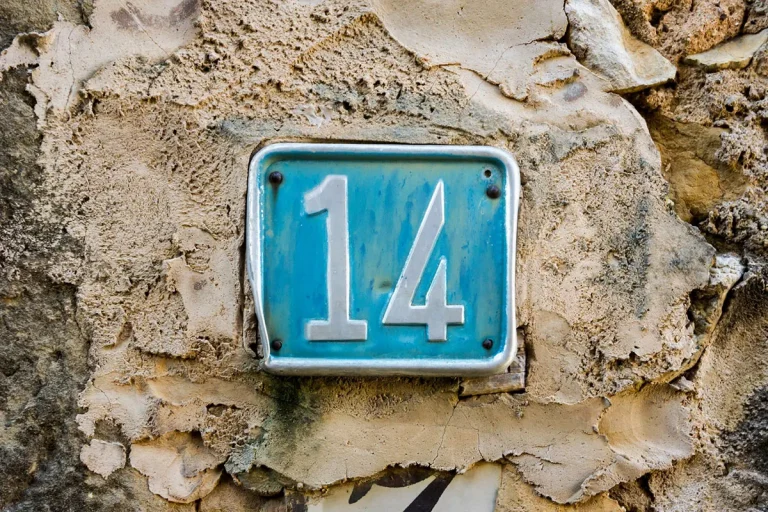The persistent ticking of clocks often fades into the background of our awareness, becoming forgotten ambient noise. Yet this rhythmic sound holds subtle symbolic meaning, speaking to deeper truths about the nature of time and our mortal experience.
If you’re short on time, here’s the key insight about the spiritual meaning behind clock ticking: The relentless march of time conveyed through ticking clocks serves as a reminder of the preciousness and fleetingness of life, prodding us to make the most of each moment before it slips away into the eternal sea of passed experience.
In this in-depth article, we will explore the meditative quality of clock ticking, how it evokes the slept-away years of our lives, the call to presence it issues, the metronomic pulse of mortality every click conveys, and the ultimate timepiece ever ticking away in the background of our days that will one day fall silent for each of us.
The Hypnotic, Meditative Nature of Ticking Clocks
The Trance Inducing Quality of the Sound
The rhythmic, repeating ticking of a clock can have an almost hypnotic effect on the listener. As we focus our attention on the persistent tick-tock, it can induce a pleasant, trance-like state. The predictable pattern serves to calm the mind, providing a point of meditative focus not unlike a mantra in meditation.
Much like staring at a pendulum swinging back and forth, the ticking sound has a similar power to narrow our concentration, bringing about a hypnotic response.
Tuning Our Attention Inward
The subtle background noise enables us to tune out external stimuli and turn our attention inward. The white noise effect blocks out intrusive sounds from around us, allowing relaxation. As we listen closely to the methodic beat of the clock, it encourages the mind to follow the rhythm, ignoring disruptive noises.
The ticking induces a flow state in which outside distractions fade into the background as we become immersed in the present moment.
The Relaxation Response
Hearing the familiar pattern of clock ticking triggers a decreased heart rate, slower breathing, and a drop in blood pressure as part of the relaxation response. Focusing intently on the hypnotic sound can activate the parasympathetic nervous system to counter everyday stress.
The cadence of ticking may remind us of peaceful moments growing up when we would hear the bedside clock as we fell asleep. These associations reinforce the ticks’ capacity to evoke memories of safety, comfort, and rest.
Ticking Clocks as an Emblem of Our Slept-Away Years
Marking the Passage of Time
The constant ticking of clocks serves as an inescapable reminder of the passage of time. With each rhythmic tick, another moment of our finite time on Earth slips away. As American author Thomas Wolfe once wrote, “the clock ticks out the little time we have.”
Since the pendulum clock was invented in 1656, the ticking and tocking has become the soundtrack to humanity’s numbered days. The clock marks out our lived experience into measurable units that we call minutes and hours.
As the philosopher Henri Bergson mused, clock time “spatializes time by compacting the flow of our everyday lives into units with numerical values.”
The Accumulation of Lapsed Moments
While each individual tick may seem inconsequential, the accrual of ticks and tocks amounts to days, months, and years of our personal existence. Time ticks away one second at a time, but before long it tallies up to significant portions of our lifetime.
The clock face quantifies the cumulative passage of time into 12- and 24-hour blocks. The hour hand sweeping the clock’s circumference signifies the completion of yet another hour passed. On the global scale, Worldometers estimates over 100 billion hours have elapsed worldwide since the start of 2023 alone.
“Lost time is never found again,” Benjamin Franklin once cautioned about wasted hours. But the tick of the clock keeps an audit of each moment, whether fruitfully spent or carelessly frittered away.
Gone Like Yesterday
“Time flies,” goes the old adage. Despite time’s steady metronomic march, the swiftness with which weeks and months flit by often surprises us. We marvel at how the days seem to slip through our fingers like sand.
“Gone like yesterday” is another idiom expressing time’s evanescence. Our yesterdays vanish without a trace, yet the ticking clocks remain as evidence that another day has indeed passed. Novelist Thomas Hardy described this phenomenon poetically: “And then the clocks stopped ticking, and time finally died, and all the unborn tomorrows flashed before my eyes.”
The ticking clock conveys life’s ephemerality by reminding us that our allotted days are numbered. “Our life is but ticks of moments,” observed the ancient Greek historian Polybius. And so we listen to the clocks ticking away the little time left and reflect on how we spend our fleeting days under the sun.
The Call to Presence Which Clock Ticking Issues
Summoning Our Awareness to the Now
The persistent ticking of clocks serves as an ever-present reminder to be mindful of the present moment (Carpe Diem!). As each second ticks by, we are called to focus our awareness on the here and now instead of dwelling on the past or worrying about the future.
The regular rhythm of the ticks and tocks summon our consciousness to appreciate the gift of now. As Thich Nhat Hanh wisely said, “The present moment is filled with joy and happiness. If you are attentive, you will see it. “
Making Each Moment Count
In addition to anchoring us in the present, the ticking of clocks reminds us that our time is precious and prompts us to make the most of each passing moment (Memento Mori). With every tick and tock, we are alerted that our lifetime is finite and that we must prioritize meaningfully.
The ticks serve as a metronome setting the tempo to dance to each day because tomorrow is never guaranteed. Rather than postponing joy or wasting time on negativity, the ticking clocks call us to live purposefully now.
Carpe Diem and Memento Mori
Ultimately, the recurring ticking of clocks conveys a nuanced message encompassing both Carpe Diem and Memento Mori. With each tick, we are reminded to anchor fully into the present moment and cherish the now.
And with each tock, we are prompted to make our limited time matter through purposeful living. The synchronistic tick-tocks are the rhythm of life itself – appreciating the gift of now while making each moment count. So the next time you hear the familiar ticking of a clock, heed its call by awakening your awareness to the present while being inspired to live your precious moments meaningfully.
Every Tick Conveys Our Metronomic March Towards Mortality
The Pulse of Impermanence
The steady ticking of a clock serves as an incessant reminder of the ephemeral nature of our existence. Each rhythmic beat marks the irreversible passage of time, counting down the fleeting seconds and minutes of our lives (Marcus Aurelius).
As the swinging pendulum marks the pulse of passing moments, the chimes of the hours ringing out palpably demonstrate the ephemeral lifespan of all things.
We rub our hands and stare in dismay as the hourglass empties before us grain by grain, carrying us along in its swirling vortex. The clocks seem to whisper, like a Greek chorus commenting on the unfolding drama of life: this too shall pass.
Each ticking second is a step closer to the finish line, the clock hands sweeping us along to the inevitable hour of our death (www.mortality.org).
Numbering Our Days
The persistent beat of the clock also reminds us to make the most of our numbered days, before time runs dry. As the Bible verse in Psalms declares, “Teach us to number our days, that we may gain a heart of wisdom” (Psalm 90:12).
The passing moments urge us with quiet urgency to prioritize meaning over busyness, depth over distraction.
Each swing of the pendulum asks us: How are you spending this precious sliver of allotted time? The ephemeral nature of life teaches us not to squander our fleeting days on hollow pursuits, lest we reach the end realizing we have wasted our precious blessing of existence (www.seizeyourdays.com).
The Inexorability of Approaching Death
As much as we may try to ignore or deny it, the ever-present ticking invariably turns our thoughts to the inexorable progression towards death. Each chime leaves us no closer to immortality, but rather shortens our finite thread.
While the awareness of encroaching frailty may provoke anxiety, it also ushers forth clarity and motivation to live deliberately.
The swinging pendulum conveys a poignant message: Our time here is limited, so discern what matters most while you still can. Make conscious choices before the fading moments make the decision for you.
Discover your purpose and pursue it passionately, because the clock hands can’t be stopped or turned back. Tick tock…the sounds whisper soothingly yet sternly: your days are numbered (Ecclesiastes 3:1-2). Seize them while you can.
The Ultimate Timepiece Ever Ticking Within Us
Our Heartbeat as an Embodied Clock
The steady beat of our heart, thumping away every second inside our chests, serves as an embodied reminder that our time here is limited. Our heartbeat is an intrinsic timer, counting down the minutes and hours until that final silence.
On average, the human heart beats over 100,000 times per day, tirelessly keeping time until one day it will tick no more.
Our pulse has been consistently clocking away since before we took our first breath. Researchers have discovered that a fetus’s heart starts beating as early as the fourth week of pregnancy. From those initial fluttering contractions until the day we die, our faithful heart continues its rhythmic work, unaffected by our daily stresses and activities.
Without this complex muscular pump, we wouldn’t last more than a few minutes. The heart muscle deserves appreciation as our primary organic chronometer, the ultimate countdown ticker to our finite existence.
Outliving Our Time in This Realm
As we progress through life’s stages, it becomes apparent that our physical bodies cannot keep pace with time indefinitely. Our spirits may feel youthful long after our flesh betrays our age to the world.
And no matter how we try to slow the hands of time, we cannot stay the cyclic nature of life and death here on Earth.
Time stops for no one, and despite advancements in science and healthcare, human life expectancy has limits – the current global average is 72.6 years. Every time our heart squeezes blood through our arteries, ventricles filled with renewed life one moment, death just slightly nearer the next, we are reminded not to waste the precious moments we have left to breathe, move, and simply exist in this realm.
The Final Silencing of Our Inner Ticking
Inevitably, the battery on our biological clock will deplete its charge and grind to a halt. When our time has fully elapsed, our resilient hearts will persist no longer and deafening silence will replace their familiar thrumming rhythms.
Nothing can prevent that terminal moment when our body’s foundational metronome takes its final bow out of the orchestra of life.
Some clocks run faster than others; life expectancy differs based on genetics, geography, gender, and access to healthcare. Nevertheless, death awaits us all. While we mourn those hearts that go still too soon – whether from chronic disease, accident, self-harm, or attack – we must remember the pall of death looms over all.
None can escape the endless countdown towards permanent peal of silence; our essential heart-time is doomed to expire.
Conclusion
And so the ticking goes on, ceaseless clocks chronicling our passage through time with an urgency that fades into the backdrop of awareness. Yet when we tune into those rhythmic pulses once more, we unearth a wellspring of spiritual meaning in their monotonous melody.
Clock ticking stands as an ongoing reminder to drink deeply of each fleeing moment before it drains into the sea of elapsed time, to ride the crest of our heartbeat towards realization and service while we still can.
Every tick issues the same refrain, faint yet persistently echoing through the corridors of days: awaken, live fully, love boldly, the time is now and the hour unknown when all your clocks will stand still forevermore.






